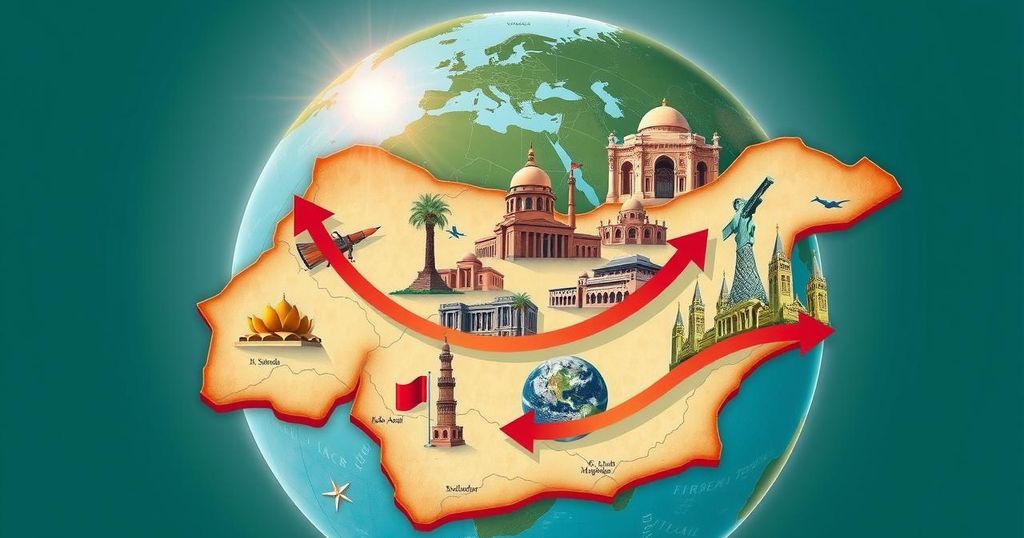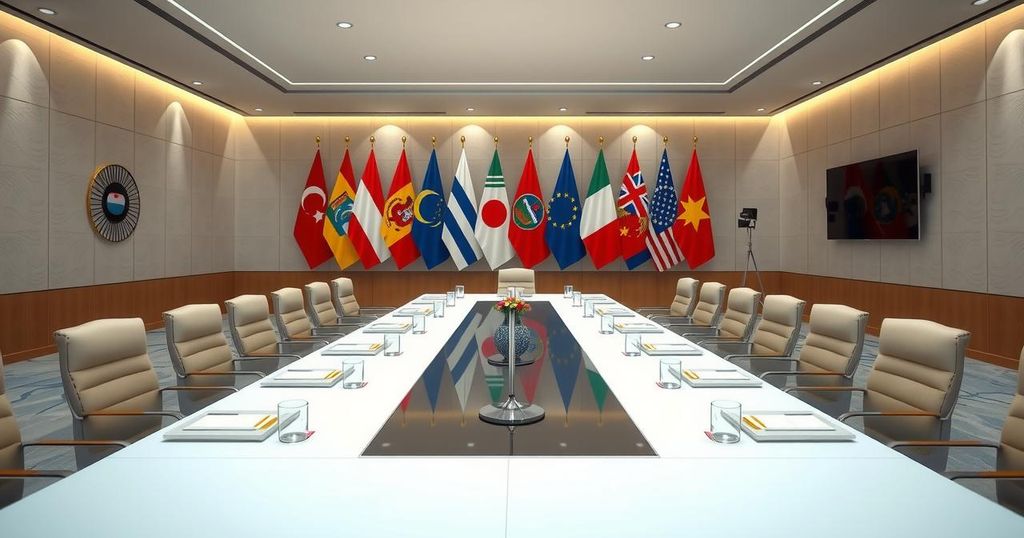Global Outcry Against Trump’s Proposal for Gaza Management
President Trump has proposed a controversial plan for the U.S. to take control of Gaza after relocating Palestinians, leading to widespread condemnation. Reactions from Hamas, Saudi Arabia, U.S. politicians, and international organizations highlight fears of ethnic cleansing and the potential destabilization of the region. Many leaders emphasize the need for a just resolution that upholds Palestinian rights.
The reaction to President Donald Trump’s controversial proposal to take control of the Gaza Strip following the displacement of Palestinians has sparked widespread condemnation. His assertion that Palestinians would “love to leave” Gaza and that the U.S. would oversee its reconstruction has raised alarms over potential ethnic cleansing. Global responses from various leaders and organizations highlight the gravity of his comments, emphasizing that they could further destabilize the region.
Hamas representative Sami Abu Zuhri described Trump’s remarks as “ridiculous and absurd,” warning that such plans could ignite chaos in the area. He firmly stated that any attempt to expel Palestinians would be met with resistance, as the people of Gaza would not permit such actions to unfold. This sentiment reflects the broader concern for Palestinian rights and sovereignty in the face of international proposals.
In contrast, Saudi Arabia reiterated its unwavering stance on the necessity of a Palestinian state, rejecting any notion of displacement. The Saudi foreign ministry emphasized its position as “clear and explicit,” reaffirming support for the legitimate rights of the Palestinian people in the wake of Trump’s comments, showcasing regional solidarity against displacement.
U.S. Senator Chris Murphy criticized Trump’s plan, deeming it dangerously reckless and likely to result in significant casualties among U.S. troops. Murphy’s observation underscores the potential for prolonged conflict in the Middle East and highlights the international skepticism surrounding Trump’s rhetoric and intentions regarding Gaza.
The Council on American-Islamic Relations (CAIR) asserted that Gaza rightfully belongs to the Palestinian people and characterized Trump’s call for expulsion as unacceptable. They cautioned that any such action would constitute a crime against humanity, devastating both regional stability and America’s international reputation.
Russian Foreign Minister Sergey Lavrov condemned the policies of collective punishment and expressed concern over Israel’s intentions toward both Gaza and the West Bank. His remarks encapsulate the international apprehension regarding the ongoing conflict and the potential for increased hostility due to unilateral actions by foreign leaders.
Australian Prime Minister Anthony Albanese expressed continued support for a two-state solution, emphasizing peace and security for both Israelis and Palestinians, while avoiding comments on Trump’s statements. This illustrates a cautious diplomatic approach amid escalating tensions surrounding the Gaza Strip.
Finally, Amnesty International’s Paul O’Brien condemned the removal of Palestinians from Gaza as an act that would equate to their destruction as a people. O’Brien’s assertion highlights the critical humanitarian implications of Trump’s announcements and the urgent need for a resolution that respects the rights of Palestinian residents.
The discourse surrounding President Donald Trump’s plan for Gaza follows ongoing tensions resulting from the Israeli-Palestinian conflict. The suggestion that the United States would take over Gaza after the displacement of Palestinians has triggered fears of ethnic cleansing and raised serious moral and legal questions. Global leaders and organizations have reacted strongly against such remarks, illustrating the complex political dynamics at play and the humanitarian implications that arise from prospective policies in the region.
The overwhelming global condemnation of President Trump’s remarks regarding Gaza underscores a deep concern for the rights and dignity of the Palestinian people. Responses from local and international stakeholders reflect a consensus against any measures that would lead to displacement or loss of life. As the situation in the region continues to evolve, it is critical that dialogue focuses on paths toward peace that prioritize justice and respect for all parties involved.
Original Source: www.aljazeera.com








Post Comment